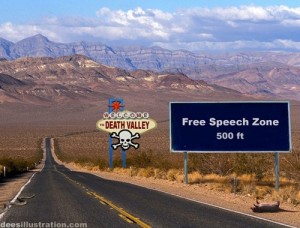Because governments have generally taken over control of water, consumers are confused and often oblivious to the true costs of the commodity. Municipalities sometimes divert BILLIONS OF DOLLARS taken from taxpayers into water delivery systems; yet consumers view their tapwater as “free.”
If private sector entrepreneurs were allowed to provide water in a free market, price adjustments would quickly eliminate episodes of scarcity. And MOST PEOPLE WOULD HAVE ACCESS TO CLEANER, HEALTHIER WATER FOR LESS MONEY THAN THEY PAY NOW. According to noted economist Robert Wenzel:
[W]ater is just like any other commodity, if you price it below market clearing levels, you will have shortages.
If you allow market prices, shortages disappear. When you have market prices, incentive is provided for development of new sources of water and the price acts as a disciplinary force against “waste.”
Robert Wenzel, editor of the Economic Policy Journal, continues:
Yesterday, Brown, as Governor acted, and declared the “first ever statewide mandatory water reductions.” “Hello, Venezuela,” I thought to myself. But when I turned to the governor’s press release, it said this:
“The Governor’s order calls on local water agencies to adjust their rate structures to implement conservation pricing, recognized as an effective way to realize water reductions and discourage water waste.”
Yes, there was a lot of nonsense in the release and the water sector should be privatized, but that said, it is quite impressive that Brown recognizes the problem as a pricing problem.
Jerry Brown for President of Venezuela! I say.


